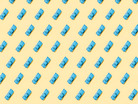“I did wonder if I would be met at the airport by lawyers,” he muses. That was more or less the fate of the book’s predecessor, The Polyester Prince, Mr McDonald’s unauthorised biography of Dhirubhai Ambani, which was famously blocked from release in India and for years was only available in surreptitiously circulated photocopies, and then more recently in pirated editions sold at traffic lights.
But Mr McDonald knows that such a reception was not likely for the new book. “They have become much more sophisticated now,” he says. The Ambani brothers, now aided by PR agents, would know that any overt attempt to suppress the book would be a larger story than anything the book might say — and in any case, it could hardly equal what these teams have been releasing about each other in the not distant past.
Mr McDonald admits that this was the one twist in the Ambani saga that surprised him. After Dhirubhai’s death, he did feel the brothers would remain close for longer, and it was the speed and the fury of their split that lured him back to writing this sequel.
“I know there was one story at that time which said it was all for show, but I really don’t think that was the case,” he says. For all that both brothers have large empires of their own, they are empires that face real challenges, and which certainly hardly loom over the Indian markets as Reliance did in the undivided Dhirubhai days.
Perhaps this was never likely in the absence of Dhirubhai himself. Mr McDonald’s has tried to do justice to the story of the polyester princelings, but one can sense that his heart is not really in it, because neither have the incredible raw charisma of their father.
In time, as direct memories of him fade, people have started to speak of him less as an individual than a type of businessman, of the kind who would have done what he did even if he personally had not. And perhaps someone would, yet this leaves out how audaciously and brazenly he did it. “There was simply no one else like him,” says Mr McDonald.
Dhirubhai is often described as the epitome of the wily bania businessman, but Mr McDonald’s research of his early years shows how often he strained against the conventions of not just the standard Indian businessman of his time, but also those from his own community. “The contrast is with someone like Viren Shah, who was from the same place, the same community but never achieved what Dhirubhai did,” says Mr McDonald.
The scale of the risks he took, his ambitions to do more than make a name for himself in his community, the way he could be ruthless to his own community, for example, in divesting himself of his early partner, Chambaklal Damani, all mark him out as fundamentally different.
Mr McDonald admits he has no clear explanation of why he was so different. “Perhaps it had to do with a difficult relationship with his father,” he says, but then shrugs. Dhirubhai’s difference from his father, who never really succeeded, is clear, but in the end these are speculations. For his sons too, their motives can only be speculated on, though Mr McDonald does note in his book a few things like how Anil Ambani has so consciously linked himself to the image of his father.
How much has this image changed in the years since Dhirubhai’s death? Mr McDonald notes both the eulogies that poured out immediately after, but also the more cautious criticisms that a few people made. But in time, as memory of the specific events that evoked the criticism have faded, one is left with a more benign myth that even former foes like Arun Shourie have made, that Dhirubhai just did what he was forced to by the times, pushed to break rules that were so absurd they should not have existed in the first place.
Mr McDonald is sympathetic to some of this. At a time when in the rest of Asia they were building factories at huge capacities, it was clearly stupid for Indian entrepreneurs like Dhirubhai to be kept penned up by the excesses of licence raj. Still, he’s reluctant entirely to absolve him. “He did what he had to as he grew – but he also did things to keep others down,” says Mr McDonald firmly.
He will agree though that in the context of larger Asian capitalism, which has seen such manifestations as Communist Party officials in China becoming business bosses, Dhirubhai comes out quite well. “He stacks up very well compared to them,” says Mr McDonald. For all that he strained at limits, Dhirubhai always operated within the context of a democratic society, and never the crony capitalism in much of the rest of Asia.
Perhaps in the end of the one mystery regarding Mr McDonald’s first book on Dhirubhai is why he tried so hard to stop it. As Mr McDonald recalls from his one interview with him, he was often happy to confirm many of the stories about him — for example, the very early one about how he made money in Aden when he realised that the value of the silver in the coins there was worth more than their face value, so he could make a small margin by collecting and melting them down.
It’s true that Dhirubhai’s later exploits would be a lot more audacious than that, but given his characteristic openness — again, another unusual trait for an Indian businessman — why did he mind Mr McDonald’s attention. “Perhaps in the end it was something quite trivial, like my writing about how dark he was considered to be,” wonders Mr McDonald. “It is a pity, because I would really have loved to sit down with Dhirubhai and speak with him for hours and hear all those stories from him. It would certainly have been a much better book.”
But Dhirubhai is dead and the sons are not speaking either and while Mr McDonald probably regrets that as a journalist, it’s doubtful he feels the loss as much. For now he’s just happy that they haven’t stopped the launch of Ambani & Sons. “I never made any money from all those pirated copies, so this time I hope I will,” he laughs.
Download The Economic Times News App to get Daily Market Updates & Live Business News.
Download The Economic Times News App to get Daily Market Updates & Live Business News.









 Get Unlimited Access to The Economic Times
Get Unlimited Access to The Economic Times
